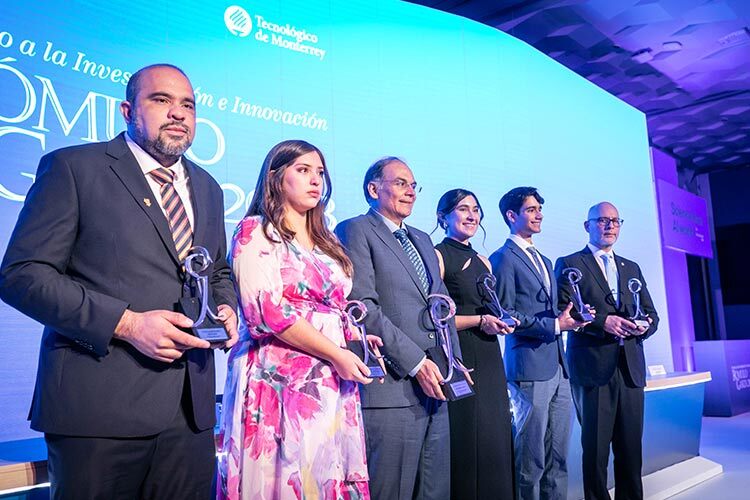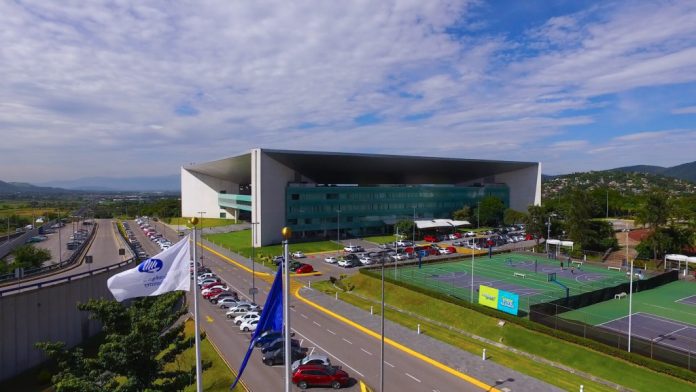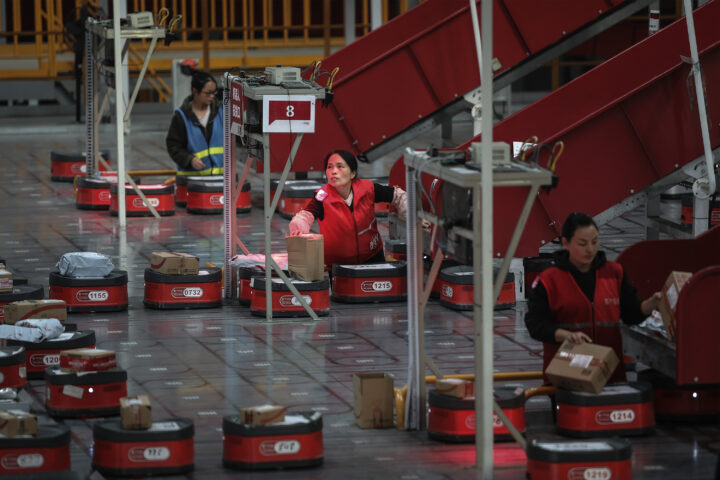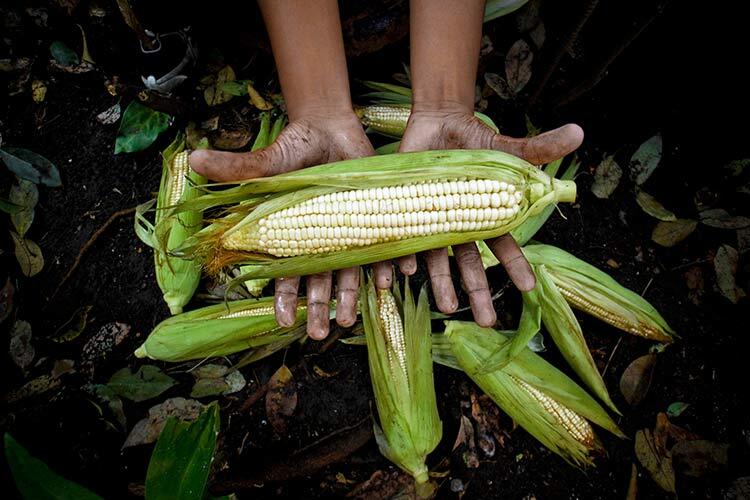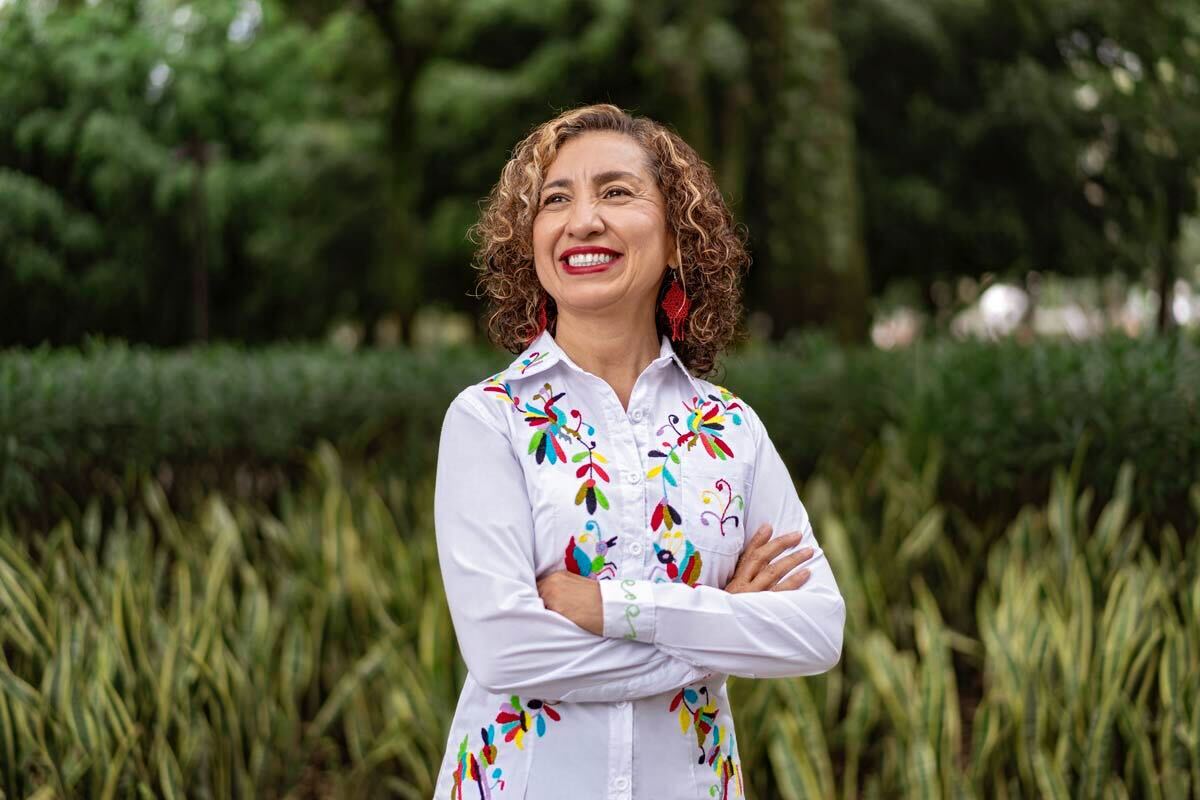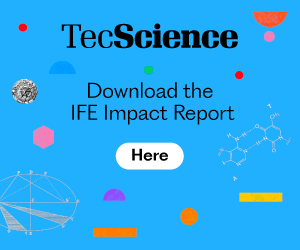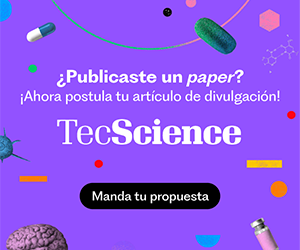A nanolubricant for the automotive and aerospace industries, scientific research into the relationship between a country’s fragility and entrepreneurship, and a 35-year career in science were recognized in the 2023 Rómulo Garza Award.
This year, Arturo Molina Gutiérrez, Edgar Raygoza, and José Ernesto Amorós were recognized for their remarkable contributions to their respective fields of study and scientific and technological growth.
Three high school, undergraduate, and graduate student projects were also recognized with awards. This honor is presented jointly by Tec de Monterrey and Xignux.
A Lifetime Devoted to Science
Arturo Molina Gutiérrez received the 2023 Insignia, the primary category of the Rómulo Garza Award, for his achievements and contributions to science throughout his 35-year career at the Tecnológico de Monterrey.
Molina is a prominent figure in engineering and technology; he currently leads the Institute of Advanced Materials for Sustainable Manufacturing, which, in his words, aims to “create the materials of the future.”
The researcher has focused on fundamental engineering topics such as information models for material design and manufacture, emphasizing concurrent rather than sequential manufacturing.
One of his most notable accomplishments is the development of collaboration network models based on information technologies, which have been funded by organizations such as IBM, the Inter-American Development Bank (IDB), and the European Union.
He has also collaborated on projects like the Binational Laboratory for Intelligent Energy Sustainability Management.
His research has helped to develop the notion of S3 Systems (Sensing, Smart, and Sustainable).
“At the Institute of Advanced Materials for Sustainable Manufacturing, we have created a concept we call materials of the future; we seek for them to be social and according to the needs of people or industry, to be recyclable, reusable, and compostable, sensitive, safe, and intelligent,” Molina said in a previous conversation.
He has also created instructional models, such as the “Open Innovation Laboratory,” and has contributed to engineering education within the country and international institutions in Costa Rica.
“Education and research require dedication, enthusiasm, and love. To young people, I say that there is nothing more exceptional in life than doing something you are passionate about and love. Do that, and you will never regret it, just as I never have.”
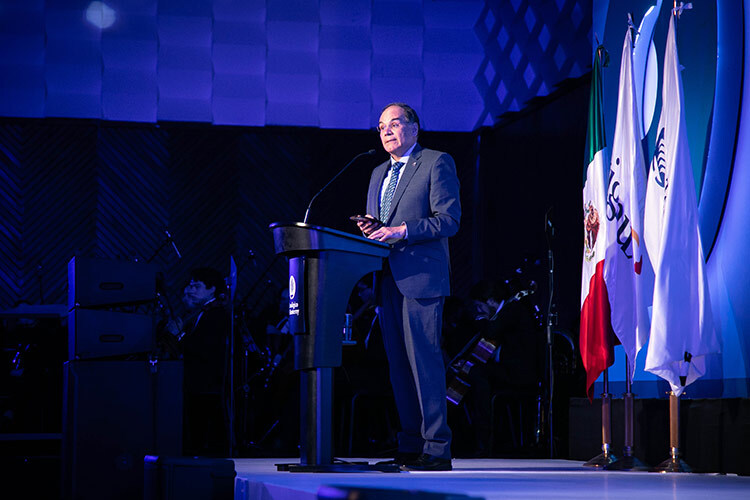
Smart Nano Additives
During his doctoral studies, Edgar Raygoza established the scientific-technical enterprise Global Nano Additives, which focuses on developing additives such as industrial lubricants using nanofluids.
These additives can be blended with regular oil, and the nanoparticles bind to the metal’s micropores, forming a protective coating against friction and wear.
They also offer thermal stability, are suitable for metal cutting, and can sustain up to 200% greater pressure than standard lubricants.
One breakthrough of this technology is that it is resistant to bacterial breakdown, which increases its performance or longevity by 60%, avoids odor generation, and reduces the danger of skin irritation for operators.
Furthermore, typical additives based on sulfates, chlorates, and phosphates were avoided during the manufacturing process to reduce the environmental impact when disposed of.
Edgar, the company’s founder and CEO, has developed and implemented effective business strategies while establishing commercial contracts with corporations in the automotive and aerospace industries.
“Entrepreneurship is the ultimate goal of research: the potential to make a difference. It gives you immense gratification to observe the impact of your studies on society.”
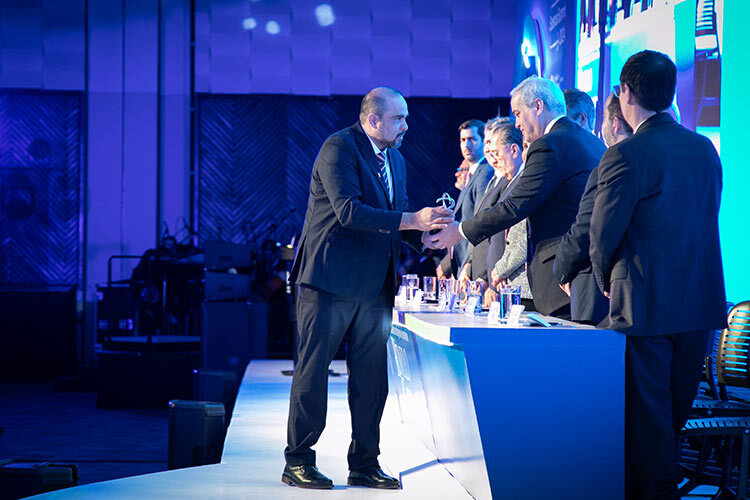
Country Fragility Leads to Entrepreneurship
José Ernesto Amorós research, titled Necessity or Opportunity? The Effects of State Fragility and Economic Development on Entrepreneurial Efforts offers a unique perspective on how government fragility and economic development affect entrepreneurial activities in Latin America.
Unlike previous research efforts, this project included data collected from 956,925 people from 51 countries between 2005 and 2013, allowing for a record of the interaction between institutional context and entrepreneurial behavior and economic development at the individual level.
The findings show that when governments are fragile, people tend to engage in entrepreneurship out of necessity rather than opportunity, particularly in developing economies.
Aside from its academic significance, the researcher’s work at EGADE Business School has impacted public policy and entrepreneurial development.
Also, it has been utilized as study material and a reference in various contexts, contributing to the discussion about how to create a more conducive environment for entrepreneurship in Latin America.
“This is recognition for the entire research community, from Tecnológico de Monterrey, the School of Business, and the EGADE Business School, who have made a significant proposal to study the phenomenon of entrepreneurship and innovation and its relevance for the economic and social development of Mexico and our communities.”
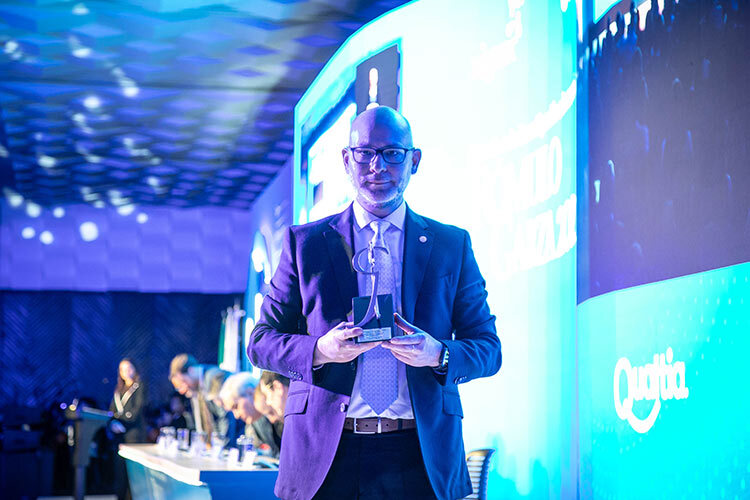
Student Research Awards
The award also rewards research work students complete at all three educational levels.
José María Salvador Martínez, a PrepaTec Global Program student, won this year with his project titled A Transformer-based Approach for Vulnerability Detection. The research uses Artificial Intelligence (AI) to detect cybersecurity anomalies.
This project involves developing an attention-based neural network capable of determining whether a code fragment is susceptible.
This will allow developers to identify and repair vulnerabilities early in the development lifecycle, saving time and effort by avoiding extensive rework and improving the overall resilience of software systems.
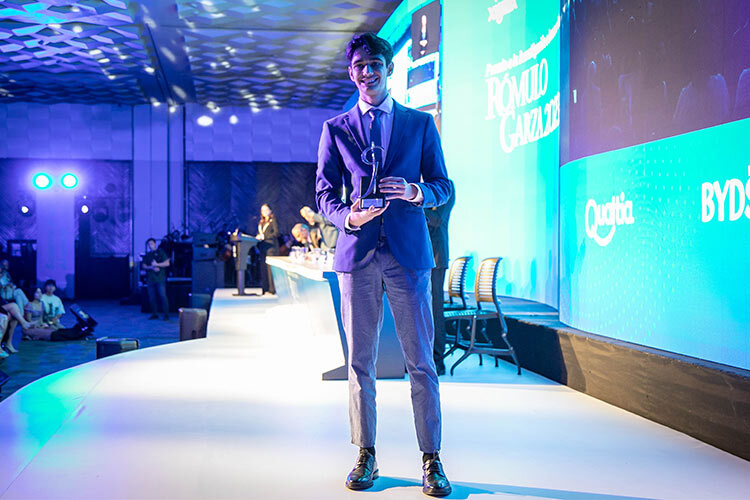
María Paula García, a Nanotechnology Engineering student at Campus Monterrey, won the undergraduate category.
Her research project’s title is Green Synthesis of Gold-based Anisotropic Nanostructures for their Application as Active SERS Substrates for Organic Dye Detection.
This study addresses the pollution generated by the textile industry, specifically the lack of assessment methods for developing residues and dyes (methylene blue, malachite green, and crystal violet) that harm aquatic environments.
The fundamental innovation of this research project is the proposal to replace harmful reagents with starch and hydrogen peroxide (H2O2), which operate as stabilizing and reducing agents while being ecologically acceptable.
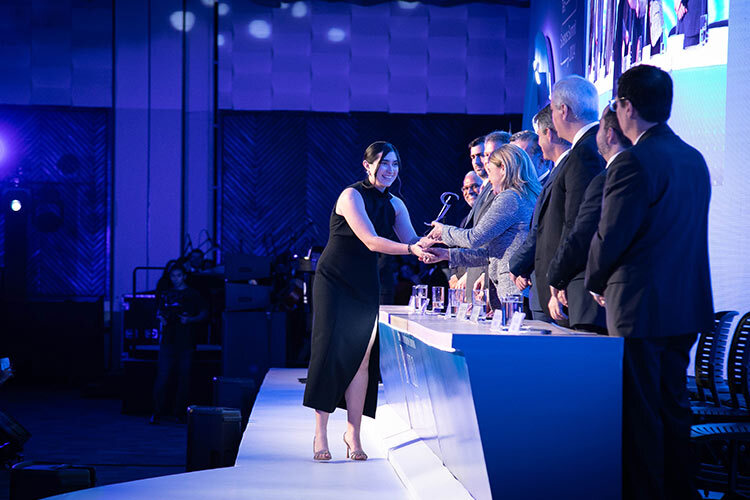
Fernanda Estibaliz Ibarra, a Master of Science in Engineering student at Campus Monterrey’s School of Engineering and Sciences, took first place in the Graduate Projects category.
Her research project is Harnessing the Methanogenic Potential of the Organic Fraction of Municipal Solid Waste Generated in the Metropolitan Area of Guadalajara; the project’s technical and scientific contributions can be used to develop new policies that promote a more sustainable energy scenario.
Additionally, her research indicated that, despite establishing multiple anaerobic digestion plants to treat urban organic solid waste in impoverished nations worldwide, many hurdles remain to be overcome before this technology can be implemented as a circular economy approach.
